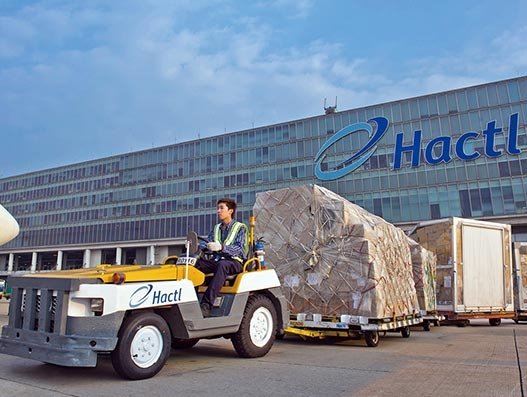
Air cargo terminals are juggling freighter peaks, says Hactl chief
The pandemic crises arrived relatively early to Hong Kong Air Cargo Terminals Limited (Hactl) compared to other major air cargo terminals in other parts of the world.

The pandemic crises arrived relatively early to Hong Kong Air Cargo Terminals Limited (Hactl) compared to other major air cargo terminals in other parts of the world. The Chinese New Year, which is celebrated in the early weeks of February, generally lifts off the work load and slows down the general traffic, as factories remain shut. But the uniqueness of this year, considering the cataclysmic effects of Covid-19 pandemic, which has left developed and developing economies under a lockdown, didn’t allow the expected recovery of Hactl’s cargo volumes.
 Discussing the current situation during a webinar hosted by the STAT Times on the subject of ‘The air cargo challenge in the midst of Covid-19’, Wilson Kwong, CEO, Hactl, explained “Due to severe cut back in the scheduled passenger flights, a lot of the belly space has become unavailable.”
Discussing the current situation during a webinar hosted by the STAT Times on the subject of ‘The air cargo challenge in the midst of Covid-19’, Wilson Kwong, CEO, Hactl, explained “Due to severe cut back in the scheduled passenger flights, a lot of the belly space has become unavailable.”
The Covid-19 pandemic is challenging the world with a greater economic imbalance. And with countries entering into recessionary phase and the current prevailing challenges of the pandemic, demands are dropping and predicted to drop as we enter the second half of the year.
For now, there is a peak in cargo demand, and airports are busy handling the shipments that are arriving through unconventional methods. The number of passenger aircraft has reduced significantly with increased buzz around freighter traffic. “Because the number of passenger aircraft has reduced considerably, we are seeing a trend of increased freighter traffic getting scattered during the day, which was earlier focused during the small hours,” Kwong explained.
Talking on the effects the increased freighter traffic are having on Hactl’s general operations, Kwong stated that “It helps levelling out the workload, this means that we have to change our rooster pattern. We have to ensure that air cargo supply chain remains functional and we have, so far, being doing that.” He added, “Hong Kong is the busiest cargo airport in the world and if anything were to happen to Hong Kong, global air cargo supply chain will be disrupted. So on the line with what we do, we are ensuring that supply chain is not disrupted. A lot of resources have been put in to ensure that.”
So far the pandemic has not disrupted the workforce at the terminal and Kwong claims that it is functioning as normal, as all the necessary safety and precautionary measures are effectively put in place. He assured that “Safety of all our terminal users including our staff is very fundamental. We have put in a lot of precautionary measures; we have to have body temperature checked as we enter the terminal followed by a second test during lunch time or in the middle of the shift, while ensuring that our air cargo supply chain remains fully functional. I think that calls for a lot of agility in our approaches.”
Kwong comprehensively talked on the effects ecommerce may have on the air cargo industry and opined, “The factories in Guangdong province, which exports a lot of its goods from Hong Kong, are resuming their operations. But at the moment, we are still clearing backlogs from the Lunar New Year period. Right now, we are very busy operationally. This may be a longer recovery but ecommerce would definitely be one of the main drivers of the growth coming forward to a new normal.”

